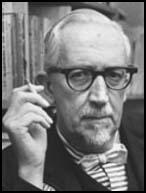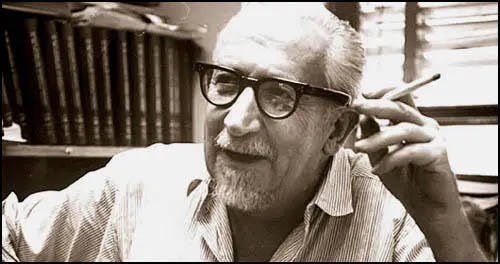Dwight Macdonald

Dwight Macdonald was born in New York City on 24th March 1906. After being educated at Phillips Exeter Academy and Yale University he found work as a journalist. A college friend of Henry Luce, MacDonald became a journalist on Time Magazine. Later he became associate editor of Fortune.
During the Great Depression he became a follower of Leon Trotsky. This brought him into conflict with his employer and in 1936 MacDonald resigned over the censorship of an article on U.S. Steel. The following year he became editor of Partisan Review, a magazine that was set-up as a rival of the New Masses, that was under the control of the American Communist Party.
In the early 1940s he broke with Leon Trotsky and became an anarchist. In 1944 he established Politics. This gave him the opportunity to publish writers such as Paul Goodman and C. Wright Mills. His biographer, Stephen J. Whitfield, has argued: "Politics enlisted the energies of such European writers as Simone Weil and Albert Camus, as well as refugees from Nazism and Fascism, and was distinguished by an independent effort to re-examine the categories of Marxism and the automatic allegiance to the working class or to trade unions."

After the Second World War Macdonald became concerned about the behaviour of Joseph Stalin and he became a strong opponent of the Soviet Union and like his fellow Trotskyists, Max Eastman, Bertram Wolfe and Max Shachtman, became a Cold War warrior in the 1950s.
Macdonald returned to the political left in the 1960s and was a strong opponent of the Vietnam War and other foreign adventures. During this period he was a supporter of the Students for a Democratic Society.
Dwight Macdonald died on 19th December 1982.

